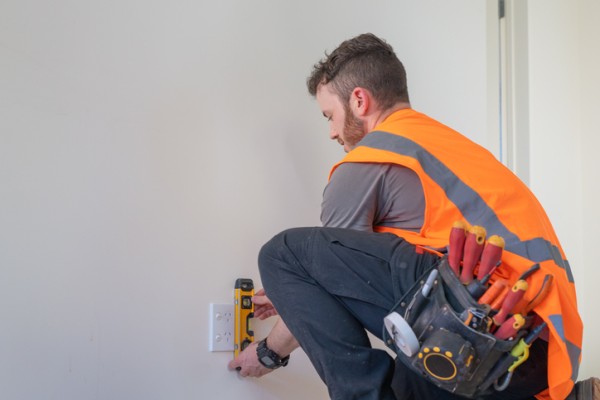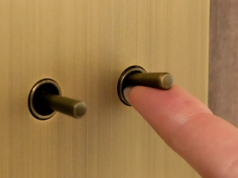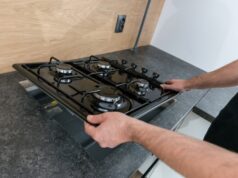
Hiring a qualified electrician is essential whenever you’re undertaking electrical work in your home.
In Australia, strict laws regulate who can carry out electrical work, and for good reason. Electrical installations done incorrectly can be incredibly dangerous, even deadly.
This guide will help you understand what to look for when hiring an electrician in 2025 and how to ensure the work is legal, safe, and up to standard.
Why you need a licensed electrician
In Australia, any electrical work (apart from the most basic tasks like changing a light bulb) must legally be carried out by a licensed electrician. Attempting DIY electrical work is not only dangerous, but it can also void insurance policies and breach local laws.
All states and territories require electricians to hold current licences. In most cases, electricians must also be registered as electrical contractors to legally perform and certify work. After the work is complete, they must issue you with a Certificate of Electrical Compliance (COC) or equivalent document — this confirms the work meets safety and regulatory standards.
For your safety, always verify your electrician’s licence with the relevant state authority. Here are a few helpful links:
- Victoria: Energy Safe Victoria
- NSW: Service NSW
- QLD: WorkSafe Queensland
- SA: Consumer and Business Services
- WA: Energy Safety WA
What’s new in 2025?
Updated electrical standards
Australian electrical work must now comply with AS/NZS 3000:2018 (commonly referred to as the Wiring Rules), an updated standard that reflects advances in modern technology.
This includes rules for installing electric vehicle (EV) chargers, solar power systems and battery storage, all of which are increasingly common in new builds and renovations.
Growing demand for smart and sustainable skills
Today’s electricians don’t just wire up lights and power points — many now specialise in:
- Smart home system installation
- EV charging stations
- Solar and battery systems
- Home automation and energy management
When hiring, it’s a good idea to find someone with experience in these newer areas if you’re incorporating these systems into your build.
What does an electrician cost?
Costs vary depending on your location, the type of job, and how experienced the electrician is. Here’s a rough guide (in Australian Dollars):
- Call-out fees: $50–$140
- Hourly rates: $80–$140
- Fixed-price jobs (for example, lighting installations, switchboard upgrades): Prices vary so always get a quote.
Always request a detailed, written quote that outlines the full scope of work, inclusions, and estimated completion time. This protects both parties and helps avoid unexpected costs later on.
What to ask when hiring an electrician
To make sure you’re hiring the right person, ask the following:
- Are you fully licensed and insured?
- Can you show proof of your licence?
- Do you provide a Certificate of Electrical Compliance (COC)?
- Have you worked on similar types of projects before?
- Do you specialise in smart home or solar installations?
- Can I see references or online reviews?
You should also confirm that the electrician carries public liability insurance, especially if they’re operating as a contractor or business owner.
After the job: What to expect
Once the work is complete, your electrician should:
- Test and verify the installation
- Provide a COC
- Walk you through how to safely use any new systems
- Leave the work area clean and tidy
Keep all documentation, including certificates and receipts. These may be required for insurance, resale or future electrical upgrades.
Final tips
- Never hire an unlicensed electrician, even for “small” jobs.
- Be wary of unusually low quotes, these may signal a lack of experience, proper licensing or hidden costs.
- Use online directories, local recommendations and government licence checks to find reputable professionals.
Hiring a licensed electrician ensures your home is safe, compliant and future-ready. Whether you’re installing downlights or building a high-tech smart home, the right electrician will make all the difference, not just in quality, but in peace of mind.





